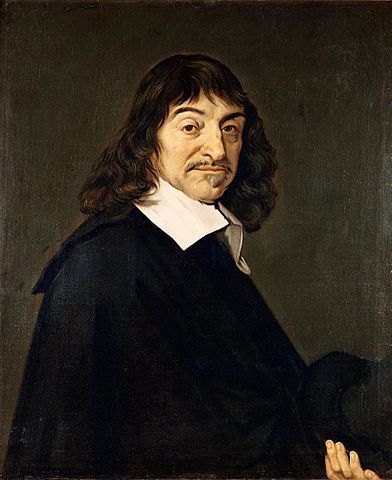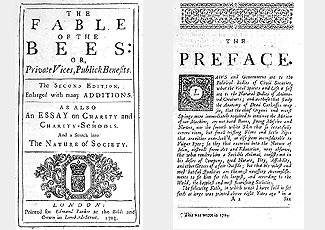Five most influential economic philosophers
 René Descartes
René Descartes
Descartes’s scientific approach to perceiving the world unquestionably represented a huge breakthrough, and this is doubly true for economists. We have seen that the notion of the invisible hand of the market existed long before Smith. Homo economicus has gained his (a)moral side from Epicurus, but he acquired his mathematical and mechanical part from René Descartes. Descartes’s ideas, of course, became absolutely key, if not determining, for the methodology of economic science. Economics started to develop at the time when his legacy received widespread recognition. The first economists widely discussed theories of knowledge, and all have proven to be successors to Descartes. His ideas were brought to England by John Locke and David Hume. Through them, Descartes’s teachings penetrated economics as well—and they have remained firmly built into it to this day. In no other social science were the Cartesian ideas accepted with as much enthusiasm as in economics.

Image of the title page of the 1705 edition of Bernard de Mandeville’s Fable of the Bees.
Bernard Mandeville
Bernard Mandeville is the true father of the idea of the invisible hand of the market as we know it today. The theory of the market’s invisible hand, which today is erroneously attributed to Adam Smith, left a deep mark on the morality of economics. It postulated that private ethics do not matter; anything that happens, be it moral or amoral, contributes to the general welfare. It’s not difficult to suspect that just at the moment when the principle of the invisible hand is trivialized, ethics becomes seemingly irrelevant. The originally universal notion of the relationship between ethics and economics, which we have already encountered in the Old Testament, was turned on its head. Together with Mandeville, the argument began that the more vices there were, the more material well-being there could be. It’s a certain historical irony that Adam Smith sharply and completely clearly distanced himself from the idea of the market’s invisible hand as Bernard Mandeville presented it.

John Locke
John Locke, a well-known defender of (almost absolute) property rights and one of the fathers of the Euro-Atlantic economic tradition, put forth a notion that private ownership has a beneficial influence on social calm, proper order, and positive motivational impulses. Locke argues this using both reason and faith: “Whether we consider natural reason, which tells us that men, being once born, have a right to their preservation, and consequently to meat and drink and such other things as nature affords for their subsistence, or ‘revelation,’ which gives us an account of those grants God made of the world to Adam, and to Noah and his sons, it is very clear that God, as King David says (Psalm 115:16), ‘has given the earth to the children of men,’ given it to mankind in common.” Human law must never infringe on the eternal laws of God. Not even private property laws can be placed above man as a member of human society. In other words, the institution of private property falls at the moment human life is at stake.

David Hume
David Hume contributed in great measure to the understanding of economic anthropology overall. He commented on key topics of economic interest such as the origin of social order, the theory of utility and self-love, and also the relationship between rationality and extrarationality. Hume was made famous by the passage that sets rationalistic anthropology on its head: “Reason is, and ought only to be the slave of the passions, and can never pretend to any other office than to serve and obey them.” The passage more or less summarizes his philosophy—reason and feelings do not fight against each other and one is not set against the other. They are not lying on the same level so as to compete with each other. Human actions are led by feelings, passions, and affects, and reason plays its role only on a secondary level, in the process of rationalization.

Adam Smith
Adam Smith, an exceptional English thinker from the eighteenth century, is universally considered the father of modern economics. Adam Smith talks of a basic social principle of sympathy, which holds society together. The popular reading of Smith makes economics lopsided. For an understanding of the current state of economics it is therefore necessary to read both Smiths. Because if one focuses only on the popular side of Smith’s Wealth of Nations without having the broader context of The Theory of Moral Sentiments, one can easily reach conclusions that were not of Smith’s intentions. Smith did understand the crucial importance of ethics and gave it a major role and place in society, although his legacy is a bit confusing.
Tomas Sedlacek lectures at Charles University and is a member of the National Economic Council in Prague, where the original version of this book was a national bestseller and was also adapted as a popular theater-piece. He worked as an advisor of Vaclav Havel, the first Czech president after the fall of communism, and is a regular columnist and popular radio and TV commentator. He is the author of Economics of Good and Evil: The Quest for Economic Meaning from Gilgamesh to Wall Street.
Subscribe to the OUPblog via email or RSS.
Subscribe to only business and economics articles on the OUPblog via email or RSS.
Images source: Public domain via Wikimedia
The post Five most influential economic philosophers appeared first on OUPblog.









 Related StoriesCorrelation is not causationCome together in Adam SmithInternational Day for Tolerance: A Q&A with Amos N. Guiora
Related StoriesCorrelation is not causationCome together in Adam SmithInternational Day for Tolerance: A Q&A with Amos N. Guiora
Oxford University Press's Blog
- Oxford University Press's profile
- 238 followers



